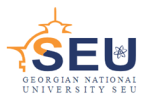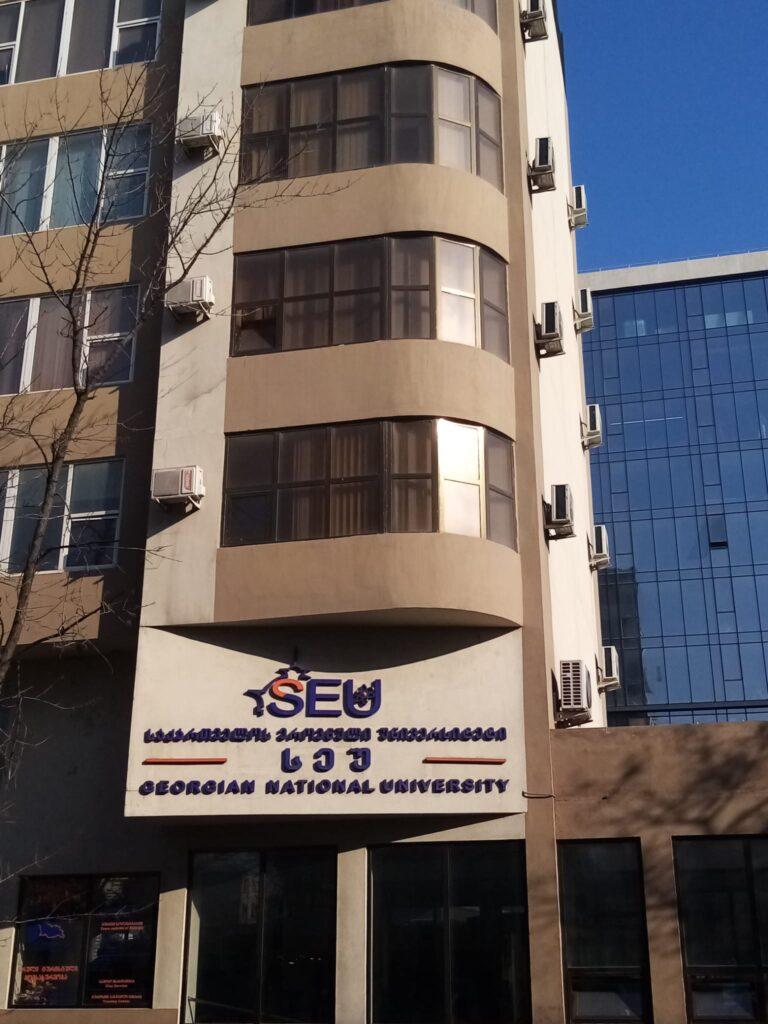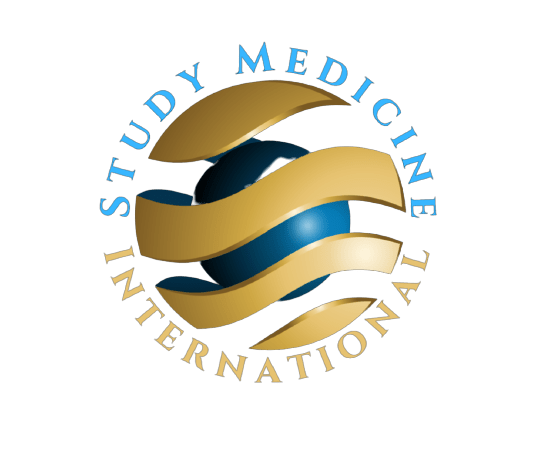- +44 (0) 730 599 5999

Tuition Fee
$ 5,500
Admission
No Entrance Exam
Intakes
March / October
COURSE LENGTH
6 Years (360 Credits)
HOSTEL
Girls/Boys Separate
Recognition
Worldwide
SEU Georgian National University
Georgian National University SEU is the largest private higher education institution in Georgia, which has been successfully operating since 2002.
The Faculty of Medicine gives citizens of any country in the world the opportunity to receive a quality education in the field of health care.
The Faculty of Medicine administers a one-step, English-medium educational diploma program for certified physicians accredited by National Centre for Educational Quality Enhancement. Respectively, the program meets the ENQA and WFME standards. (This programme is equivalent to MBBS in most countries)
The Faculty of Medicine is a member of the Association for Medical Education in Europe (AMEE) and the Association of Medical Schools in Europe (AMSE) and has signed memoranda of cooperation with universities and medical clinics around the world.


MEDICINE IN ENGLISH (6 years - 360 credits)
The programme aims to provide the graduates with the necessary knowledge and competencies relevant to the national and international standards of the field that will ensure their further study in a professional direction; ensure with the modern, deep, systemic, and integrated knowledge of biomedical, preclinical, clinical sciences and its application into practice, facilitate their motivation for continuous improvement of their knowledge and life-long learning, develop interpersonal, clinical skills, decision making based on the evidence-based data, understanding clinical cases in broad social, cultural contexts to promote health, wellbeing and prevent diseases, understanding of a physician’s professional, ethical and legal responsibilities and contribute to the field development in the constantly changing environment.
Goal of the Programme
- Knowledge of biomedical and clinical sciences, their scientific methods and principles, and the necessity for Life Long Learning (LLL).
- Clinical, interpersonal, and practical skills.
- Case-based clinical reasoning and taking decisions.
- Understanding clinical cases in and social, cultural context.
- Understanding of a physician’s professional, ethical, and legal responsibilities.
The programme is constructed by the ECTS credit system, duration of studies 12 semesters measured in 360 ECTS credits. One credit stands for 25 astronomic hours that cover contact hours and hours of independent work. The student is to receive about 30 credits per semester, 60 credits – per year. According to the features of the programme and the students’ requirements, the number of credits can be less or more than 60, but not more than 72 per year. Students are allowed to take only extra 15 credits during all 6 years.


Programme Structure
The programme is constructed by the ECTS credit system, duration of studies, 12 semesters, over 6 years period, measured in 360 ECTS credits. One credit stands for 25 astronomic hours that cover contact hours and hours of independent work. The student is to receive about 30 credits per semester, 60 credits – per year. According to the features of the programme and the student’s requirements, the number of credits can be less or more than 60, but not more than 72 per year. Students are allowed to take only extra 15 credits during all 6 years.
All courses imply one midterm exam, semester everyday activities, and the final exam. A student who fails to earn 41 points during the semester activities, and the final exam scores, is not eligible to sit for the additional exam. A student having earned 41-50 points is eligible to sit for the additional exam. A student is to set for the additional exam in the same semester within at least 5 days after the announcement of the result.
First two years students study basics of medicine – Body Structure in the norm (integrated modules: anatomy-histology-imaging), Body Function in the norm and neuroscience (integrated modules: physiology-biochemistry), main concepts of biomedical sciences: Cell Biology (integrated with biochemistry), Molecular Biology and Genetics, Immunology, basics of research – argumentation, reasoning skills; health and society, Clinical and Professional skills (CAPs) (integrated with Medical Ethics and Communication in Medicine).
Integrated modules are taught in the format of interactive lectures, practical training, seminars, labs, simulation lab., etc. Students use high-fidelity mannequins, simulators, anatomical specimens, microscopes, microscopic specimens, audio-video equipment, etc. Lecturers use Problem-Based learning – (PBL, clinical correlations)


The third year covers preclinical courses – health and defense, basics of clinical sciences, research skills, basics of physical and clinical diagnosis, health and society, and Clinical and Professional skills. Basics of Clinical Sciences covers integrated modules of Pathology and Pharmacology, and the course Health and Defence cover integrated modules of Microbiology, Pharmacology, and Immunology. The physical diagnosis provides basic methods of a patient’s physical examination according to the systems of the body. In compliance with it, the relevant methods of clinical investigation (radiology and laboratory) are taught in the courses of Clinical Diagnosis. The courses of Clinical and Professional Skills (CAPs) are held in clinics and simulation labs. Courses dealing with diagnostic methods use Case-Based Clinical Reasoning (CBCR cases). Students are engaged in clinical problem-solving and critical reasoning and develop skills of synthesis and analysis of information and its clinical application.
From the fourth year, students deal with clinical courses in the format of clinical rotations/clerkships – Internal Medicine, Infectious Diseases, Surgery, Obstetrics & Gynecology, Pediatrics, Neurology, Psychiatry, Leadership, research skills, Clinical and Professional skills (CAPs), etc. Clinical courses from the 4th year have integrated OSCE exams each semester where the clinical and professional skills taught during the semester within clinical courses and the CAPs course are evaluated and assessed.
The sixth year is devoted to the advanced practice in medicine. Students study clinical activities in various inpatient and outpatient settings – Family Medicine, Rehabilitation and Sports Medicine, Geriatrics and Palliative Care, Emergency Medicine, Personalized Medicine, and Clinical Pharmacology.
The courses of Research Skills are studied during all 6 years and teach students the argumentative writing, medical databases and working in it, methods of research skills, epidemiology, biostatistics, evidence-based medicine, and finally students develop a project (XI semester). At this level, students have acquired methods and tools for the implementation of the research work – critical analysis of scientific literature, organization and development of research, data processing, analysis and synthesis, and presentation of the results of the conducted research work.
The courses of the Block of Health and Society consists of 5 courses that cover topics in cultural, and ethical issues, their influence on healthcare, prevention of diseases, lifestyle, health promotion, medical sociology, gender issues in healthcare, healthcare management, and global health. Contact us for more details.

